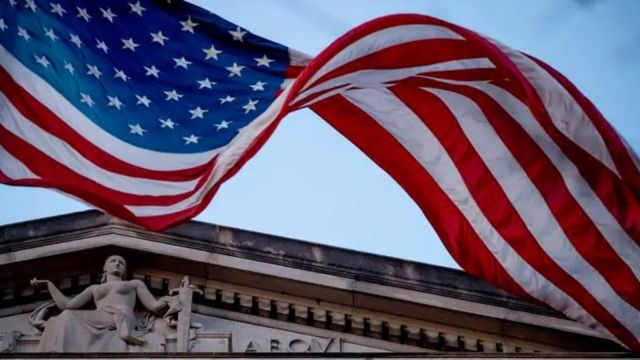US lawmaker urges Pentagon to reconsider beard-shaving policy for Sikhs
In a recent letter addressed to Secretary of War Pete Hegseth, Congressman Thomas R Suozzi underscored that Sikhs have fought alongside American troops for generations, including in both World War I and World War II.
 Suozzi acknowledged the importance of military professionalism and uniform standards but underlined that faith-based or medical accommodations should not be overlooked. (AP Photo)
Suozzi acknowledged the importance of military professionalism and uniform standards but underlined that faith-based or medical accommodations should not be overlooked. (AP Photo) Highlighting concerns for Sikh Americans serving in the military, a prominent US lawmaker has urged the Pentagon to reconsider a policy that calls for a blanket beard-shaving mandate among service members, emphasising that retaining uncut hair and a beard is a core tenet of their faith.
In a recent letter addressed to Secretary of War Pete Hegseth, Congressman Thomas R Suozzi underscored that Sikhs have fought alongside American troops for generations, including in both World War I and World War II.
“For Sikhs, serving one’s nation is a sacred duty, an embodiment of the Sant-Sipahi (saint-soldier) ideal that blends faith and service. The Sikh religion requires adherents to maintain uncut hair and beards as a symbol of devotion and equality before God,” the US representative for New York’s 3rd congressional district said.
Suozzi acknowledged the importance of military professionalism and uniform standards but underlined that faith-based or medical accommodations should not be overlooked.
He said some of his Sikh, Muslim, and African American constituents fear that a “beard ban,” if implemented without religious, cultural, or medical exemptions, could inadvertently prevent them from serving their country in uniform.
In his address to American general and flag officers last month, Hegseth had said, “We’re going to cut our hair, shave our beards, and adhere to standards… The era of unprofessional appearance is over. No more beardos.” Suozzi said these remarks have raised questions among otherwise “highly motivated” Americans whose faith or medical conditions require the maintenance of facial hair.
“I believe it is entirely possible to uphold the highest standards while also preserving reasonable, case-by-case accommodations — ensuring that those willing to serve can do so without compromising their deeply held beliefs,” he said.
The Congressman noted that for many Muslim men, maintaining a beard is a Sunnah Mu’akkadah, a deeply recommended religious practice symbolising modesty and devotion to God.
For many African Americans, he said, hair is deeply tied to cultural identity and heritage.
“Additionally, shaving can pose serious medical challenges due to natural hair texture, often causing pseudofolliculitis barbae (PFB) — a chronic and painful skin condition disproportionately affecting Black service members, who represent nearly one-fifth of all enlisted personnel,” Suozzi said.
He argued that existing legal protections, such as the Religious Freedom Restoration Act (RFRA), already allow for such a balance.
“I am confident your Department can continue maintaining the high standards of appearance and discipline… while preserving these longstanding accommodations under RFRA and related Department of War policies. Such a balanced approach will ensure that those who are both patriotic and devout can continue to serve honourably, without being forced to choose between faith and country,” Suozzi said.
His appeal comes alongside the introduction of the Bipartisan Indian American Heritage Resolution last week, which he and Republican Young Kim co-sponsored. The resolution was introduced to mark the celebration of Diwali.
The resolution celebrates the history and contributions of Indian Americans across the United States and “condemns acts of hate, discrimination and violence against Indian Americans and the broader South Asian community, including those targeted for their Hindu, Sikh, Jain, Muslim, or other religious or cultural identity,” Suozzi’s office said in a press release.
“Indian Americans are an integral part of our community in Southern California and across the United States. Their success stories reflect the very best of the American Dream,” said Kim, the US representative for California’s 40th congressional district.
“I’m proud to stand with the Indian American community as we introduce this resolution just in time for Diwali, a moment to honour their achievements and the values that light the way for our nation,” she said.





